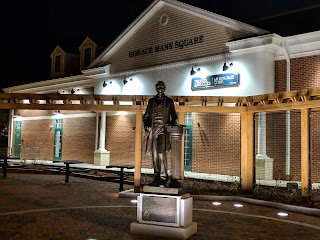The following is a text representation of the printed page 73 (actually 80 of 264)
"ANNUAL REPORT OF THE 2016 ADVISORY COMMITTEE
The Council Advisory Committee annual report for 2016 is as follows.
The Advisory Committee held four meetings during the year, and its work consisted, largely, of updating and reviewing past initiatives with reviewing two significant proposals.
The first involved a thirty-four unit condominium development which was primarily a matter-of-right with some minor revisions and was fully supported by the Committee and the Council. It is now before the Planning Board.
The second proposal was for a sub-division of approximately 37 units of upscale housing under a private home ownership/condominium form of ownership. Said development which fit the parameters of a newly established Zoning district, Zone 7. The proposal was fully supported by the Advisory Committee and endorsed by same, sending a recommendation of support to the Council. However, the council failed to support a two thirds majority (6) needed for approval of the Zoning change.
It was then, and remains, the position of the Committee, that development that benefits the community at large, which the foregoing development did, that it is incumbent of the Councilors to make decisions based on that standard and not to succumb to either political posturing or influence. Which, in my opinion, and other members, concur, caused the failure of this legislation to pass. This opinion, certainly in no way is to either disregard or
ignore valid argument in opposition, or to recognize the independence of the Council and it’s obligations to the electorate, but rather to seek decisions that positively impact the community at large and particularly have a positive economic and aesthetic impact. Indeed, the assessment of the Committee of that action left many members wondering whether to continue serving if the opinions and charge of the committee, as defined by the Council, is not being recognized. The Advisory Committee has agreed to serve until the November election and will then decide whether to continue.
Certain past discussions and topics which the Committee has addressed, and the Council and Administration have implemented: some ongoing, others concluded are: Cook’s Farm, train station, downtown revitalization, fasttracking development, South Franklin Historic Meeting House, rezoning, the Community-Business concept, old town hall development, Thompson Press development proposal, the recycle center (Town Dump), removal of temp classrooms at Davis Thayer, improvements to Davis Thayer, the Gate Way concept as well as numerous meetings and discussions to encourage and support commercial development in our central business district. Commercial Development in South Franklin, and proposing the town move to acquire the land on 140/495, which currently houses a salt barn and storage site, and has significant potential and value to the community and was, at one time, acknowledged by the state as such.
Our role is to create and/or add to the discussion, and to that end, I am obliged to the Committee and those members of the Council, staff and administration for their support and contribution; to the many municipal employees who are second to none; and the many volunteers and residents who help make our community a special place.
Thank you all in behalf of the Committee.
L.P. Benedetto, Chairman
Members:
Paul Cheli, Vice Chair
Judith Pond Pfeffer, Vice Chair
Robert Ficco
Bruce Hunchard
Diane Daddario Jardine
Robert Vallee
Associate Members
Joseph Halligan
Paul Compton
Rick Circone"
 |
| The Franklin Dean MBTA station |
You can find the online copy at the Town of Franklin webpage
http://www.franklinma.gov/town-clerk/pages/annual-reports
and specifically for 2017
http://www.franklinma.gov/town-clerk/files/town-annual-report-2017-revised






